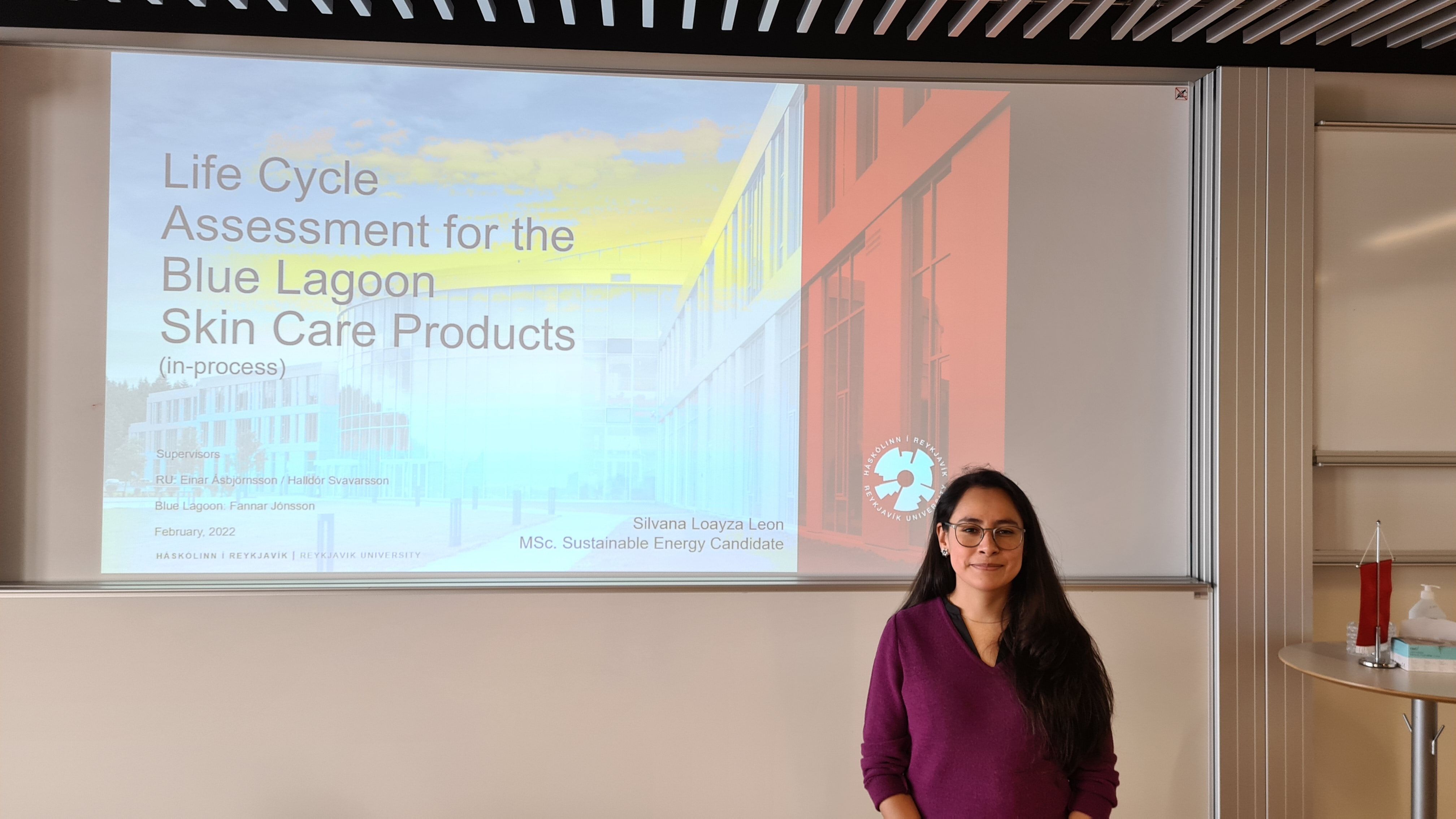Kick-off SIF Lunch Lecture
LCA Studies at the Blue Lagoon
REYKJAVIK, February 17 - The Sustainability Institute & Forum (SIF) launched a new lunchtime lecture series, where members of our community talk about their current research projects. The series kicked off today with an interesting talk given by MSc candidate Silvana Loayza Leon, about her ongoing thesis research with the Blue Lagoon. The lecture was held on campus in M209 at 12:00.

Silvana's study is focused on conducting a Life Cycle Assessment (LCA) to understand the environmental impacts of producing two Blue Lagoon skincare products to support decision-making with regard to domestic or international production. Silvana is supervised by Dr. Halldór Guðfinnur Svavarsson and Dr. Einar Jón Ásbjörnsson at Reykjavik University as well as Fannar Jónsson at the Blue Lagoon.
In her talk, Silvana speaks to the motivation behind her study, the scope and objectives of her research, and details her LCA methodology. Currently, some of the key ingredients used in Blue Lagoon skin products are shipped to Europe for processing. Methodological frameworks such as Life Cycle Assessments measure the environmental performance of the processes throughout the lifetime of a product, potentially from "cradle to grave", in which steps from resource extraction to end-of-life processing are considered.
Through LCA studies, key performance factors or "hotspots" can be identified that help support decision-making with regard to optimizing the production performance of a product. Through this research collaboration with Reykjavik University and Blue Lagoon, the sustainability of specific products can be assessed and potentially improved over time.
Silvana detailed her LCA methodology, speaking to the ingredients used in each product, the data sources used to help quantify the energy, water, raw materials, and CO2 equivalent impact of production processes considered. In this study, the BL+ The Serum and the Silica Mud Mask products are assessed. The scenarios considered were where environmental impacts are measured from current production abroad in Denmark & France, comparing this to the scenario where products would be produced in Iceland and lastly considering the impact of Certificates of Origins in Iceland to both products.
We wish to thank Silvana for an excellent presentation and wish her best of luck finishing her thesis!

